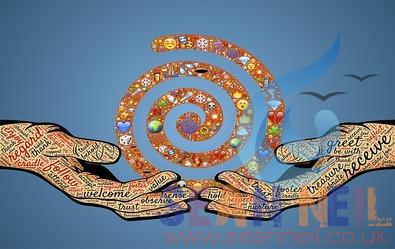Exploring the Benefits of Letting Go and Moving On
A Practical Guide to Forgiveness: Exploring the Benefits of Letting Go and Moving On
Forgiveness is a great act of empathy and understanding that has the power to bring people together and transform lives.
However, forgiving someone, even when they are not sorry, can be a transformative experience.
We’ve all encountered difficult people at some point in our lives, they could be friends, family, co-workers or simply a stranger. We have met someone who is constantly criticising us, belittling us and even bullying us. Sometimes we may have contributed towards it but often we become the receiving end of abuse without any fault of our own.
It can be challenging to forgive these individuals, especially when they are not sorry for their actions.
What is Forgiveness and Why Should We Confront It?
We all make mistakes. Sometimes we hurt others knowingly or unknowingly, and we also get hurt by someone else’s actions. Forgiveness feels like an easy concept if we are asking for it.
How many times have we said things like, “I apologized to you several times, why can’t you forgive me?”
But when we are the one who is hurt, it takes a great deal of courage to forgive others. One of the reasons is that we think that the act of forgiveness is about accepting and encouraging someone’s bad behaviour.
This is far from true. Forgiving isn’t accepting that the action was right, or justified. It is not a surrender either.
When we are forgiving, we are not just forgiving them, we are forgiving ourselves. Forgiveness is an essential tool for everyone to move forward. By forgiving our perpetrators, we are letting go of our anger, resentment and the pain we carry.
We cannot release ourselves from the burden of negative emotions unless we forgive. For example, our grunge, anger, grievance and sometimes remorse won’t leave us until we learn to forgive. Holding this negativity also prevents the healing process to begin. Without healing, we remain wounded.
What do religions say about forgiveness?
- Christianity: Forgiveness is considered extremely important in Christianity and is thought to come from God. Christians believe that it is important to forgive even those who have done us wrong because it is not our place to judge others. They also believe that forgiveness is essential for salvation. This is reflected in this well-known prayer, “Forgive us our trespasses, as we forgive those who trespass against us,” (Matthew 6:12-14)
- Islam: Muslims believe that forgiveness is truly important as it is a way to cleanse your soul. Muslims are taught to forgive others, including their enemies, and to pray for those who have hurt them. According to the Quran, holding onto hatred towards those who have wronged you only leads to more conflict and wrongdoing. Instead, people should work together towards righteousness whilst avoiding sin.
- Buddhism: Forgiveness plays a highly valued role in Buddhism; Forgiveness helps us release ourselves from the cycle of suffering and achieve inner peace. Buddhism highlights the significance of shedding anger and bitterness and practising forgiveness not only toward others but also towards oneself. According to the Dalai Lama, truly forgiving doesn’t mean suppressing anger, but acknowledging and confronting it directly. For example, if someone wrongs us, we can choose to forgive them instead of holding a grudge so that we can experience inner peace and move forward in life.
- Judaism: Judaism believes that forgiveness is key to fixing relationships and making things right. Followers emphasize the importance of not only forgiving others but also seeking forgiveness when a mistake is made. On Yom Kippur, their Day of Atonement, they focus on asking for forgiveness and reconciling with others.
- Hinduism: Hinduism: Forgiveness plays a critical role in Hinduism, as it believes it is essential for spiritual growth. Hindus can liberate themselves from karma and live a harmonious life by practising forgiveness. The Bhagavad Gita says, to elevate yourself through the power of your mind, and not degrade yourself, for the reason can be the friend and also the enemy of the self.
- Sikhism: In Sikhism, forgiveness is a vital quality that one must possess to advance spiritually. The Guru Granth Sahib, mentions the necessity of asking for forgiveness for one’s transgressions. Although one cannot change their original nature, one seeks guidance and seek forgiveness from the Lord to remain on the right path.
What are the ways to forgive others?
There is, of course, no order or steps, but here’s something worth considering.
- Accept and acknowledge the pain and suffering. It is important to acknowledge that it is okay to feel angry, frustrated, or hurt. When we accept that we are hurt, it helps us to recognise the pain, sorrow and anger. It is also important to notice that, forgiveness cannot be forced. If we are not ready, we can’t forgive anyone. Acknowledging the suffering and accepting it without any judgement helps us to feel better, ultimately leading to forgiving our wrongdoer.
- Communicate and express: Sometimes, the person who hurt us may not be aware of it. The other person deserves to know how their actions affected us and why we were hurt. This can sometimes help them understand the impact of their actions and can lead to a resolution.
- Change the perspective: To understand the pain and suffering clearly, it is often useful to try to see things from the other person’s perspective. This way we can see their intentions too.
- Acceptance: In order to forgive others, we must accept that we all make mistakes. We must recognise that we have made mistakes too.
- Focusing on the positive: Negative experiences often overshadow the positive ones, often blurring the truth. Negativity often comes with resentment. When we let go of the resentment or grunge we may be holding, we release our negative emotions.
- Time: As mentioned earlier, forgiveness takes time and it is completely okay to take time. Sometimes we need to heal ourselves before we could forgive others. But if we could forgive others first, we heal faster.
- And finally, moving on Once we forgive, we release all sorts of pain and negativity and it is time to move on. There is no point in keeping these bad feelings alive by overthinking.
Once again, it is worth remembering that the path to forgiveness is not an easy one. But it can be done. And the post-forgiveness world is definitely better.
Here are some examples of people forgiving their perpetrators.
Nelson Mandela Despite spending 27 years in prison, he forgave his captors and worked towards healing and reconciliation in South Africa. He said, “As I walked out the door toward the gate that would lead to my freedom, I knew if I didn’t leave my bitterness and hatred behind, I’d still be in prison.”
Anne Frank died in a Nazi concentration camp. Her diary reveals that she forgave her persecutors, writing, “In spite of everything, I still believe that people are really good at heart.”
Eva Mozes Kor was a Holocaust survivor who forgave the Nazis who experimented on her and her sister. She spent the rest of her life promoting forgiveness and reconciliation.
Immaculée Ilibagiza is also a survivor of the Rwandan genocide. She forgave the men who killed her family. She wrote a book called “Left to Tell” about her experience.
Azim Khamisa was Faced with the murder of his son by a gang member, he chose forgiveness over revenge and started the Tariq Khamisa Foundation, which promotes nonviolence and conflict resolution.

What does forgiveness mean to us?
Forgiveness is not about condoning or excusing the wrongs done to us; it’s about letting go of resentment and negative emotions that weigh us down. When we choose to forgive, we give ourselves the opportunity to cultivate inner peace, growth, and healing.
Forgiving someone who is not sorry may require extra effort and courage, but the benefits of doing so are immense. Here are some ways that forgiveness can be transformative and beneficial to us:
1. Emotional freedom: Holding onto anger, hurt, or resentment keeps us trapped in negative emotions that prevent emotional growth and healing. Forgiving someone allows us to break free from these emotional chains and experience greater emotional freedom.
2. Improved well-being: Numerous studies have demonstrated that forgiveness is linked with better mental, emotional, and even physical health. By releasing the burden of negativity, we can contribute to our overall well-being.
3. Enhanced personal growth: Forgiving someone can be an excellent opportunity for self-discovery and personal growth. It can help us develop empathy, compassion, and understanding for others, as well as for ourselves.
4. Stronger relationships: Letting go of past grievances can improve existing relationships and even help us create new, healthier ones. By practising forgiveness, we can develop a more compassionate and considerate outlook that positively impacts all our relationships.
5. Inner peace: Forgiving those who have wronged us allows us to find a sense of inner peace and calm. It helps us restore balance in our lives and promotes overall happiness and contentment.
6. Breaking the cycle: By choosing to forgive, we break the cycle of negative behaviour and set a positive precedent for the future. We can inspire others to practice forgiveness and contribute to a more harmonious environment.
To work towards forgiveness, it’s essential to recognize that the process is personal and may take time. It can be helpful to seek support from friends, family, or professionals as we navigate this journey. Remember, forgiveness is a choice that ultimately benefits us and our mental and emotional well-being. In the end, by forgiving someone even when they are not sorry, we not only transform our lives but also contribute to making the world a kinder and more understanding place.
Please feel free to contact us if you like to know more about this article and anything else.

